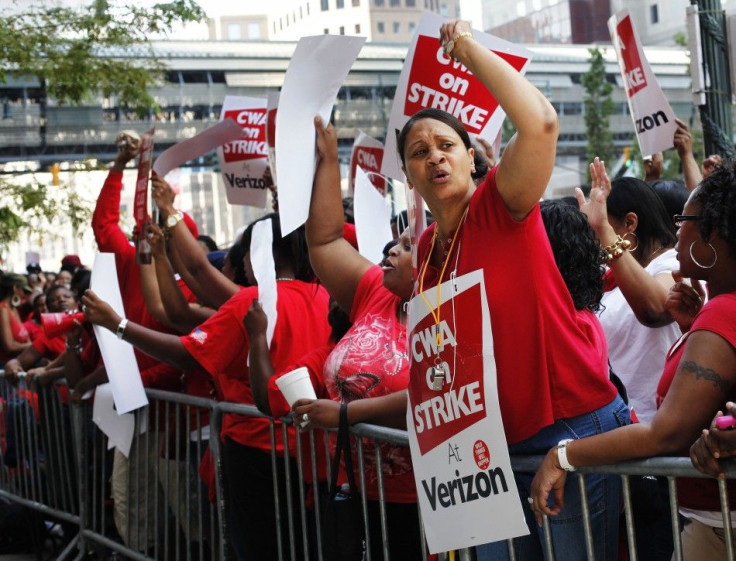Verizon Strike Turns Nasty; Company Seeks Injunctions

The Verizon strike is getting nasty as the dispute with workers moves from the bargaining table to the courtroom.
Verizon is seeking injunctions to limit picket lines, and wants to stop what it asserts are acts of sabotage, harassment and blocked access to corporate facilities. The company is fighting unions representing 45,000 striking landline workers in the Northeast and Mid-Atlantic states.
This is the second Verizon strike in about 11 years. In 1989, workers stayed off the job for three-and-a-half months.
Verizon's landline unit, which has been in a downward spiral since 2003, has been losing subscribers to mobile phones and cable TV companies. In 2010, the number of landline subscribers fell eight percent, to 26 million.
The company has already been granted statewide injunctions in New York, Pennsylvania and Delaware, and is seeking injunctions Thursday in courts in Massachusetts and New Jersey.
"We really want to negotiate the issues," Richard Young, a Verizon spokesman, told CNET. "We're asking the unions to come to the table with an open mind and discuss ways to make this wireline business more competitive and more successful.
"We're beginning to do that. The unions need to do the same."
Verizon claims that since the strike began, it has suffered more than 70 incidents of sabotage, including cut fiber optic lines, incidents of harassment of management sent to fill in during the strike, and vandalism, said CNET.
The company has said it is offering a $50,000 reward for information leading to the arrest and conviction of those responsible for the acts -- but it has also turned to the courts for injunctions to lessen the number of striking workers who can picket near company entrances and forbid striking workers from entering facilities or blocking access for others.
The unions representing the striking workers are opposed to the injunctions against picketing.
Communications Workers of America representative Candice Johnson said talks are continuing.
"Workers do have the right to communicate with the public about Verizon's demands and we maintain that... members should be able to picket about this dispute," said Johnson.
Negotiations have been tense as Verizon seeks changes that would allow the company to closely tie its overall performance to employees' pay, more easily fire workers, and require workers to contribute to their health plan benefits. Unionized workers currently pay no monthly healthcare premiums. One company proposal would have workers pay at least $100 per month toward their healthcare.
But for some the issues go far beyond healthcare. Earlier this week, one striking worker interviewed on a picket line in New York said the real issue is job security. "You take pride in your job, but they want to take everything away from you," said Bob McDermott.
Another striking Verizon worker said labor negotiations have "become personal."
"I've been (with Verizon) for 32 years," said Greg, who declined to provide his last name, "and worked very hard and you take it personally. They are giving our jobs to somebody down South, taking our food right off our table."
In 2000, about 87,000 employees were out on strike for 18 days and it had a noticeable impact on the company's service. That strike, which took place in early August, caused many service calls to not be answered until September.
© Copyright IBTimes 2024. All rights reserved.





















